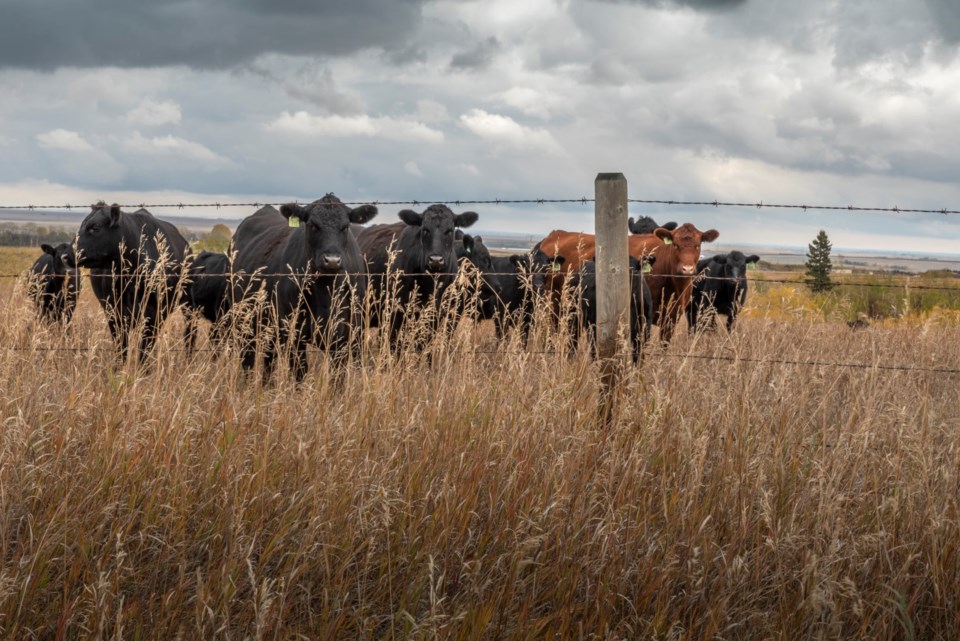REGINA —Tuesday, the federal and provincial governments announced Saskatchewan Crop Insurance Corporation (SCIC) is implementing measures to offer support to Saskatchewan livestock producers facing challenges resulting from dry conditions, allowing additional acres of low yielding cereal and pulse crops to be diverted to feed.
This allows crop producers to make timely decisions to make additional feed available to graze, bale or silage.
"We are seeing dry pockets and grasshopper damage throughout the province, particularly in the southwest." Minister of Agriculture David Marit said. "We are committed to supporting our farmers and ranchers to lessen the impact of these challenging conditions, and I want to encourage crop producers to again work with neighbouring livestock producers to make feed available. This same initiative was implemented in 2021, resulting in over 345,000 acres of additional crop redirected to feed."
When crops are severely damaged and the appraised yield falls below an established threshold level, the yield is reduced to zero for the Crop Insurance claim. In response to the feed shortage this year, SCIC is doubling the low yield appraisal threshold values allowing customers to salvage their cereal or pulse crops as feed, without negatively impacting future individual coverage. For example, the 2023 threshold level for oats is 10 bushels per acre. With a doubled low yield appraisal, the threshold increases to 20 bushels per acre for a producer intending to utilize the oats for feed. The claim is determined using a zero-bushel yield and the original 20 bushels appraised yield is used to update future Crop Insurance coverage.
Before customers begin to graze, bale or silage their damaged crop, producers should contact their local SCIC office.
Through the 2023 Crown Grazing Lease Rental Reduction Program, lessees may be eligible for a rent reduction in situations where individual lessees or pasture associations must reduce stocking rates on leases by 20 per cent or more below the rated carrying capacity their leased grazing land. Eligible lessees will have the 2023 grazing rent reduced by 20 to 50 per cent.
To help manage the challenges associated with dry conditions, AgriStability participants may apply for the interim benefit option to access a portion of their 2023 benefit early. Producers enrolled in AgriStability for the 2023 year can access 50 per cent of their estimated final benefit. Also, in most cases, the additional expenses a producer incurs to procure additional feed is an eligible expense through the AgriStability Program.
Producers are encouraged to contact the Farm Stress Line for support. The Farm Stress Line is a confidential service, available 24-hours-a-day, seven-days-a-week, toll-free at 1-800-667-4442. Calls are answered by Mobile Crisis Services Regina, a non-profit, community-based agency and there is no call display.
Producers concerned about dry conditions should contact their local SCIC office. For more information, call 1-888-935-0000 or visit scic.ca.




